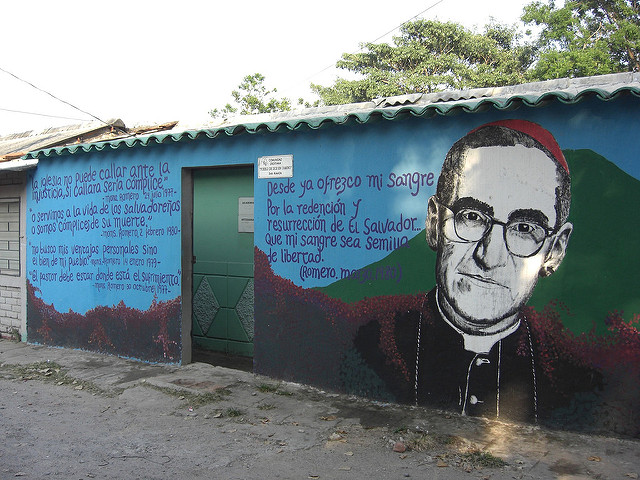A bullet may silence an individual, but it cannot extinguish the truth.
BASIC HUMAN RIGHTS
Christians must remember the life and work of Oscar Romero, the Archbishop of San Salvador who was assassinated while celebrating mass on March 24, 1980. It is through his dedication to speak out against social injustice and poverty Romero resisted state oppression and violence.
A few weeks before he was fatally shot, the archbishop wrote a letter to President Jimmy Carter, pleading him to refrain from providing aid to the Salvadoran junta, which was committing mass atrocities against its own people. Romero was a critic of the U.S.-backed dictatorship, a war that caused 75,000 deaths and the disappearance of 8,000 people. Known as the voice of the poor and marginalized, Romero declared the military aid would, “sharpen injustice and repression against the people’s organizations” who fought “for respect for their most basic human rights.”
VULNERABLE AND OPPRESSED
Romero fought for the vulnerable and the oppressed. His assassination marked the beginning of the crucifixion of El Salvador, a vicious effort to pacify a population banning together to cultivate a democracy. Nine years after Romero’s death, the United States continued to fund and equip a military that carried out systematic massacres throughout the country, including the infamous massacre in the village of El Mozote — where an estimated 1,000 men, women and children were tortured and killed. In the same year, specialists from the U.S. Army School of Special Forces created and trained the Atlacatl Battalion — an elite unit of Salvadoran soldiers infamous for slaughtering hundreds of people including the 1989 murder of six Jesuit priests.
The archbishop fought against these forces of evil reported by the Reverend Daniel Santiago. According to Santiago, Salvadoran death squads kill children and “dragged [them] over barbed wire until the flesh falls from their bones while parents are forced to watch.” What crucifixion was to the Roman empire, the death squad was to the Salvadoran dictatorship. It was a ferocious yet effective method of terror used to control and silence a population.
REFUSAL TO STAY SILENT
Oscar Romero spoke up against injustice despite knowing very well his actions would result in his death. While most of us at Biola would probably never face what Romero had to face, it remains important to speak up against injustice, no matter how uncomfortable. Dietrich Bonhoeffer, a German pastor and founder of the Confessing Church once said, “Silence in the face of evil is evil itself — God will not hold us guiltless.” The Naxis execute Bonhoeffer for his refusal to stay silent. Romero did the same, and he was fatally shot. It is through their deaths we should remember not to, according to theologian William Stringfellow, “Allow the fear of death to diminish the power of Christian witness.” Let us remember Romero and never forget history.







